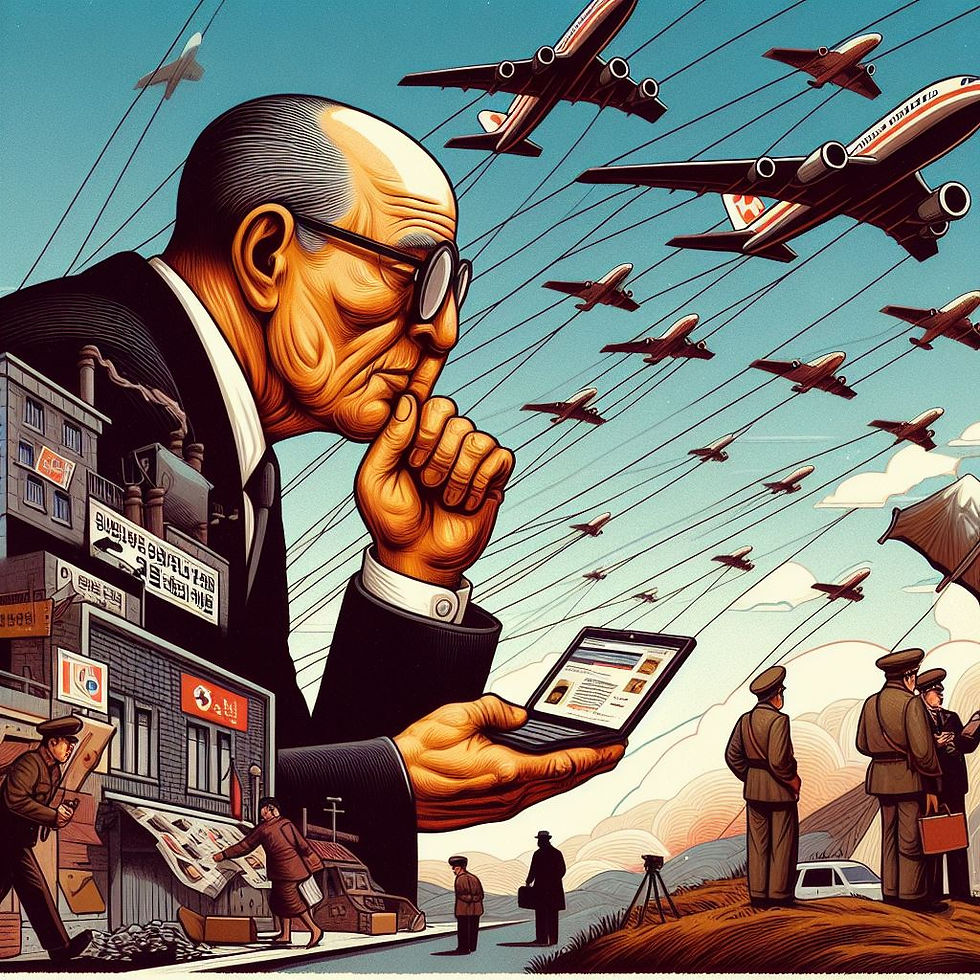Shining a Light on North Korea’s Human Rights Crisis
- info775148
- 24. 4. 2024
- Minut čtení: 3
By Lina Yoon
Senior Researcher, Asia Division
April 24, 2024

Credits @FFHR.CZ
The horrific rights record of North Korea under its leader, Kim Jong Un, is facing increased scrutiny. The United Nations Human Rights Council recently adopted a resolution that strengthens investigation of the totalitarian North Korean government’s past and ongoing rights violations. Argentina, currently a member of the council, has long supported increased attention to North Korea’s human rights situation and earlier resolutions focusing on it.
The Human Rights Council resolution, its most ambitious on North Korea since 2016, carries immense importance for victims of serious abuses in a country that is among the most isolated and repressive in the world. The resolution increases resources for the UN Office of the High Commissioner for Human Rights to focus on accountability in North Korea.
It stresses the link between North Korea’s weapons program, international peace and security, and human rights, and the urgency to address these issues collectively. It also provides for a comprehensive report on the North Korean human rights situation since 2014, building upon the landmark findings of the Commission of Inquiry a decade ago.
The 2014 Commission of Inquiry report found that the North Korean government's widespread, systematic, and gross rights violations were crimes against humanity. These atrocities span political prison camps, forced labor facilities, persecution of religious believers and people trying to flee the country, and international abductions, among other acts. The report documented a litany of abuses, from mass starvation to torture and sexual violence.
A new Human Rights Watch report published last month documents the worsening of an already grave humanitarian and human rights crisis following the Covid-19 pandemic. The North Korean government largely sealed its border with China and imposed overbroad, excessive, and unnecessary quarantines and restrictions on freedom of movement and trade.
After the start of the pandemic in 2020, the North Korean government built new and expanded fences and guard posts at its borders and strictly enforced rules, including a standing order for border guards to “shoot on sight” any person or animal approaching the border without permission.
The new restrictions also exacerbated the impact of existing UN Security Council sanctions imposed in 2016 and 2017, which restricted most exports and some imports, harming ordinary North Koreans’ livelihoods and food security.
The government’s new measures have severely affected access to food and goods critical to basic rights, such as medicine, medical supplies, soap, toothpaste, clothes, shoes, and batteries, that previously entered the country via formal or informal trade routes from China.
A former herbal medicine trader living abroad said a relative in North Korea told her in November 2022 that nobody could get close to the border. “My [relative] said there were no words to describe how hard life was,” she said. “There was no [informal] trade with China, not even to get some rice or a bag of wheat, … If [authorities] heard of a soldier allowing that, that person would just disappear, ... Soldiers are very scared, … People … said there is not even an ant crossing the border.”
The government’s expanded internal security at its northern border has made almost all unsanctioned domestic and international travel impossible, whether for informal commercial activities or to escape the country. The government also further tightened restrictions on communication with the outside world and access to information, while intensifying other ideological controls to prevent unrest.
Even before the pandemic, North Korea was one of the poorest countries in the world. The government has long struggled to guarantee the right to food, including adequate childhood nutrition, and access to medicine. For decades, the government has prioritized the development of nuclear weapons and missile programs over social services, diverting billions of dollars that could have been spent on public services and infrastructure.
The Human Rights Council resolution, adopted by consensus, demonstrates the commitment of concerned countries, including Argentina, to hold Pyongyang accountable for its actions. But North Korea’s victims need more support from international institutions and governments. Argentina, which has supported past efforts to advance accountability for North Korea’s record, should reinforce new attempts to strengthen accountability for North Korea’s rights violations and international investigations into the nexus between rights violations and weapons proliferation in North Korea. Argentina should also support civil society initiatives aimed at amplifying the voices of North Korean victims and advocating for their rights on the global stage.
Source: hrw.org









Komentáře